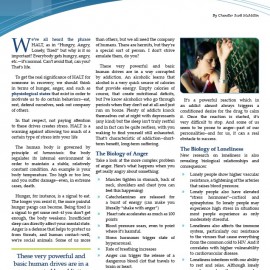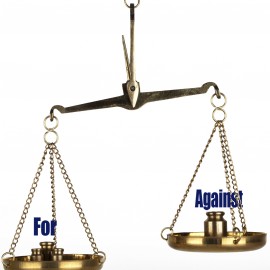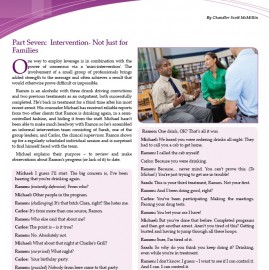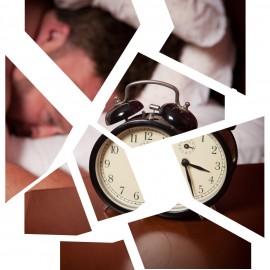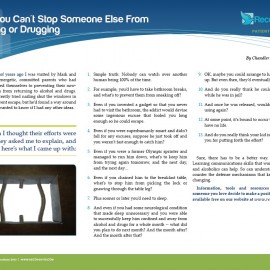Articles
HALT-ing Relapse Before it Starts
Topics: emotional issues, maintaining sobriety, Recovery Tools, relapse, stress, tools for recovery
Tips on Improving Addictions Education
Psychological theories that may be of great interest to professionals can seem like messages from Pluto to a rehab patient.
Topics: addiction and the brain, communication, early recovery, patient education, program development, therapies and tools
Why Intervention Works
The addict may have tried to control drinking or drug use many times, and failed. This experience leads him to conclude that he can’t change.
Topics: getting help, intervention, Intervention Series, leverage
Using Leverage in Counseling the Court-Referred Client, Part 7
Involving the therapeutic team adds strength to the message and can speed the accomplishment of important goals.
Topics: counseling, court-mandated, DUI/DWI, intervention, leverage, Using Leverage Series
Getting a Good Night’s Sleep in Early Recovery
For most of us, sleep problems are related to the recovery process itself, and the complex changes that occur as the brain heals following considerable abuse
Topics: early recovery, maintaining sobriety, prescription medications, Recovery Tools, relaxation, tools for recovery
Why You Can’t Stop Someone Else From Drinking or Drugging
Topics: co dependency, communication, getting help, parent child conflict
Big Room, Many Doors
I realized something: though in her mind we’d played a principal role in her recovery, she’d actually followed none of the directions we’d given her.
Topics: counseling skills, therapies and tools
The Stress Toolbox
Doesn’t mean we can expect to solve the problem right away, just that we’ve done something that moves us in the direction of a solution — and gives us permission to relax for a while.
Topics: Recovery Tools, relaxation, tools for recovery
Build Client Decision-Making Skills With Football
The point of the game is to win. You win by knowing the odds and trying to take advantage of them. Even if that means resisting emotional impulses.
Topics: client engagement and motivation, counseling skills, decision making, patient education
Four Ways to Refresh Your Website
Effective websites for addiction treatment programs need to balance between the practical marketing goals that will “sell” our program to patients and referral sources, and the service and information goals that build trust and promote our brand on a broader scale.
Topics: marketing

